Deciem is a brand that’s been gathering a lot of buzz in skincare nerd circles. They’re the parent company of a bunch of brands that are quite “sciencey” in their approach, including Hand Chemistry, Hylamide and The Ordinary. Today I’m reviewing three products (Sanskrit Saponins, CAIS and Photography Fluid) from their premium line, NIOD (which stands for Non Invasive Options in Dermal Science, in case you’re wondering) – later, I’ll be reviewing some Hylamide products as well.
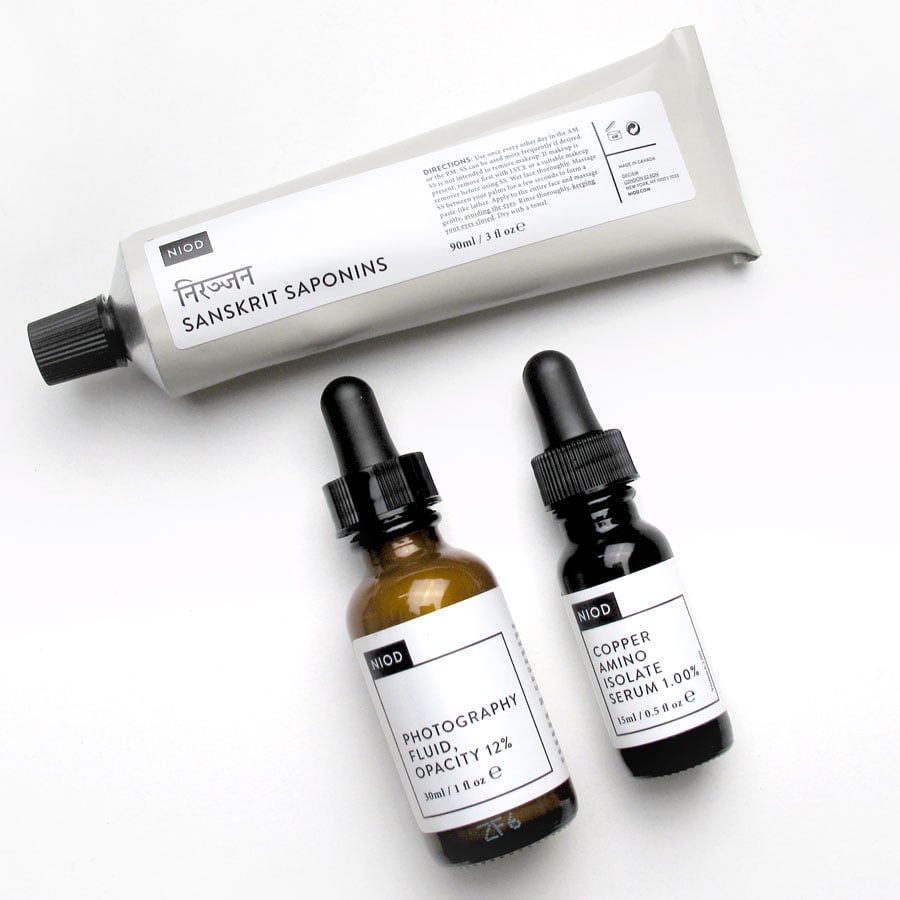
Sanskrit Saponins
Sanskrit Saponins (SS) ($34 AUD for 90 mL or $75 AUD for 180 mL) is a gentle cleanser that uses plant saponins and the amino acid lysine as the cleaning agents instead of traditional surfactants. The plants used are shikakai and sapindus mukorossi (soap nuts). According to NIOD, the advantage is that it cleanses the pores thoroughly without overcleansing.
Unlike most cleansers, Sanskrit Saponins should be used after complete makeup removal. It’s recommended for use every second day, although it can be used more frequently, and it can also be used like a mask and left on for 5 minutes over damp skin. It comes as a brown paste in a metal tube, and has an earthy herbal scent, almost like coffee, and glides on in a creamy lather. The pH is around 5. I found that it left my skin feeling a little tight afterwards, which NIOD claims is due to removing oil gently to encourage recycling, but the feeling goes away far quicker than harsh stripping cleansers. I’ve noticed that it cleans out my pores better than other cleansers – the effect is much like an oil cleansing session, but a fair bit faster. I’ve heard that it irritates your eyes and tastes gross, but I haven’t gotten it into my eyes or mouth yet.
Ingredients: Aqua (Water), Sapindus Mukurossi Fruit Extract, Stearic Acid, Arginine, Glycerin, PPG-26-buteth-26, PEG-40 Hydrogenated Castor Oil, Polysorbate 60, Sodium Polyacrylate, Acacia Concinna Fruit Extract, Balanites Aegyptiaca (Desert Date) Fruit Extract, Gypsophila Paniculata Root Extract, Trisodium Ethylenediamine Disuccinate, Sorbic Acid, Potassium Sorbate, Sodium Benzoate, Phenoxyethanol, Chlorphenesin
Photography Fluid, Opacity 12%
Photography Fluid, Opacity 12% ($45 AUD for 30 mL) is NIOD’s makeup product. It’s a pale gold liquid containing fine shimmery “light refracting prisms, tone and hue correctors and topical photo-finishing technologies” that comes in a glass dropper vial.
Photography Fluid is really good at blurring out imperfections like acne scars, redness, pores and uneven skin tone. You can use it either as foundation, under foundation or mixed in with other products. I personally prefer using a couple of drops mixed in with primer, which makes my skin look nice and airbrushed. I also found that mixing a little with tinted moisturiser gave as much coverage as full foundation, without any sort of cakey look. I particularly liked the yellow tone, which worked really well with my skin tone. I’ve tried using this on bare skin but it kind of gathered in my pores and was difficult to disperse, but it’s fine when blended with something else.
My biggest complaint is the packaging. I found that the product was too thick to really use the dropper normally – I usually just brushed the side against the back of my hand for mixing. The product also accumulates easily in the threads of the vial and dries out. There’s also a tan version available for darker skin.
Ingredients: Aqua (Water), Caprylyl Methicone, Titanium Dioxide, Isodecyl Neopentanoate, Mica, Trimethylsiloxysilicate, Cetearyl Alcohol, Propanediol, Caramel, Ceteth-20 Phosphate, Red Iron Oxide (CI 77491), Sodium Hyaluronate, Pseudoalteromonas Exopolysaccharides, Allantoin, Glucose, Fructose, Maltose, Trehalose, Sodium Lactate, Sodium PCA, Urea, Polypodium Vulgare Rhizome Extract, Cetraria Islandica Thallus Extract, Sphagnum Magellanicum Extract, Pentylene Glycol, Glycerin, Carrageenan, Acacia Senegal Gum, Methyl Methacrylate/PEG/PPG-4/3 Methacrylate crosspolymer, Dicetyl Phosphate, Synthetic fluorphlogopite, Tin Oxide, Sodium Chloride, Sodium Hydroxide, Sodium Salicylate, Triethanolamine, Citric Acid, Phenoxyethanol, Chlorphenesin
Copper Amino Isolate Serum (CAIS) 1.00%
Copper Amino Isolate Serum is probably NIOD’s most famous product, and is the one that Deciem’s founder Brandon Truaxe recommends as their must-have product. It’s an anti aging serum that claims to ” target all signs of skin aging”. It comes in both 1.00% ($90 AUD for 15 mL or $135 for 30 mL) and 5.00% ($290 AUD for 15 mL) versions, with different concentrations of copper tripeptide-1, also known as GHK-Cu.
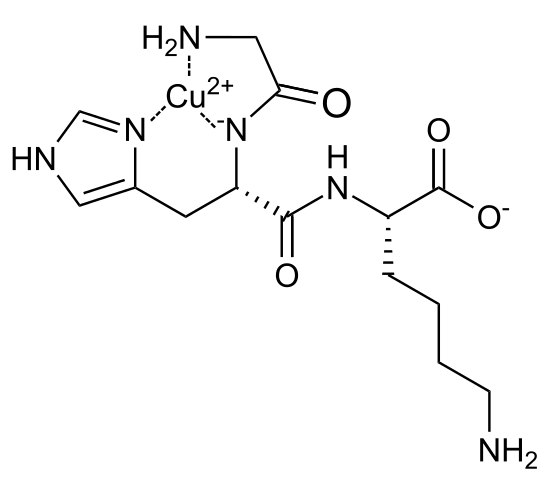
GHK-Cu is an anti-aging peptide that is thought to work by shuttling copper ions into the skin, where it’s important in the production of plumping collagen which decreases with time and accumulated sun damage. It also increases the amount of elastin, proteoglycans and glycosaminoglycans which help skin texture as well.
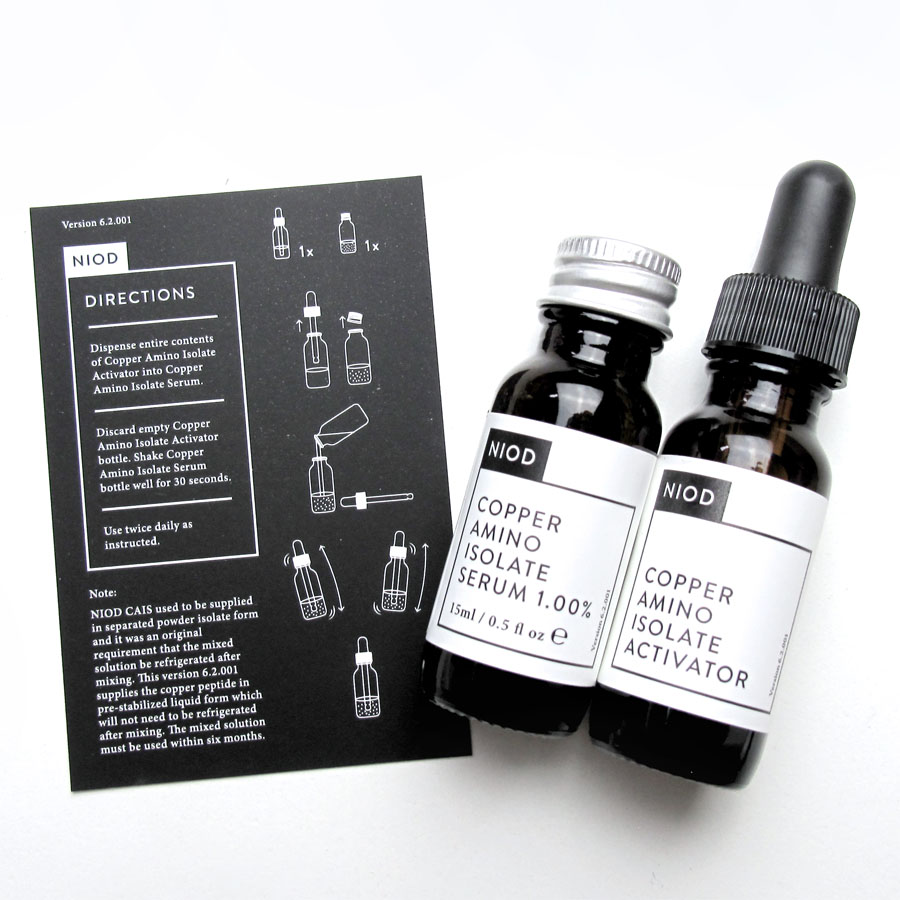
CAIS comes in two bottles, one containing the serum and one containing the activator. It expires 6 months after mixing. As well as GHK-Cu, it also contains copper/proline/lysine peptide stabilisation complex, which is what I think gives the serum its blue colour. There’s also hyaluronic acid crosspolymer and very low molecular weight hyaluronic acid which can help skin hold onto water and keep it hydrated. The serum is very watery, and has a very mild, slightly fishy smell.
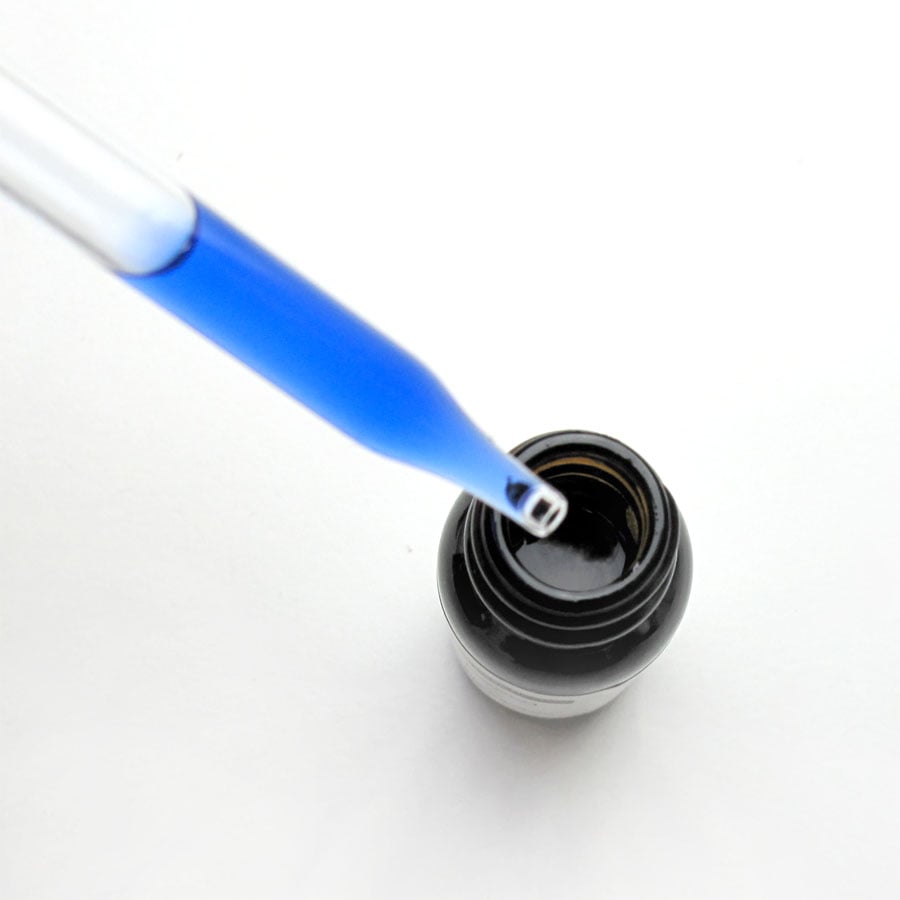
CAIS claims to have visible effects after 5 days. My skin did look slightly smoother and bouncier a few days after I used it, but I don’t think my skin is quite aged enough to have a visible effect yet.
Ingredients: Aqua (Water), Sodium Hyaluronate Crosspolymer, Dimethyl Isosorbide, Ethoxydiglycol, Glycerin, Copper Tripeptide-1, Myristoyl Nonapeptide-3, Copper Lysinate/Prolinate, Zinc Palmitoyl Nonapeptide-14, Decapeptide-22, Oligopeptide78, Palmitoyl Decapeptide-21, Methylglucoside Phosphate, Hydrolyzed Wheat Protein, PPG-26-Buteth-26, PEG-40 Hydrogenated Castor Oil, Pentylene Glycol, Ethylhexylglycerin, Xanthan Gum, Caprylyl Glycol, Glyceryl Caprylate, Phenylpropanol, Chlorphenesin, Phenoxyethanol
I’ll be reviewing some Hylamide products soon!
These products were provided for editorial consideration. This post also contains affiliate links – if you decide to click through and support Lab Muffin financially (at no extra cost to you), thank you! For more information, see Disclosure Policy.



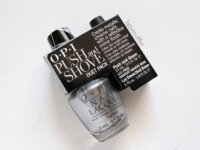
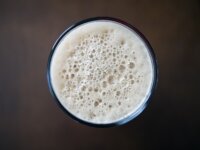
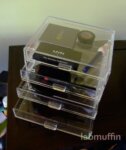
I was wondering if you would review these! They sound sooo good but at such a high pricepoint! Have you heard of The Ordinary skincare line?
I’ve heard of it but haven’t tried it yet. I really like the idea of accessibly priced, high tech skincare!
I did a big NIOD and Hylamide shop on their black Friday sale the other week. Excited to try the CAIS and i have to say just the blue colour alone looks enticing! Also excited to try the Saponins which seems pretty hardcore (which I like)
The blue colour was a real drawcard for me too! I love weird products 🙂
I like their products. Also did a huge buy of their offered Black Friday products which was an amazing sale for anyone who hadn’t tried the line yet. Their serums do not break me out which is a huge thing for me. I’ve not tried their NIOD line but I’m seriously thinking about it. I have a serious case of combination skin with winter dry patches that wreck havok on any type of makeup I put on and now with your review of their makeup product I think I did the right thing to wait. Thank you for your reviews!! I’m really glad I stumbled upon your blog.
Thank you so much! Combo skin is so annoying, I feel your pain. Do you use different skincare on different zones of your face?
Thanks Michelle. Given their “sciencey” nature, I’ve been looking forward to your take on the Deciem lines. I’m especially keen to try some of The Ordinary products, but have held off purchasing thinking … “just wait to see what Lab Muffin says first” 😉 You always help steer me in the right direction.
Thank you so much! I hope to try out the Ordinary line soon 🙂
Great indepth review! The Photography Fluid sounds very similar to Hylamide’s Photography Foundation! I love using it as a liquid highlighter.
I have the Hylamide as well, am planning to do a half-face comparison soon!
I bought a tube of Sanskrit Sapoinins and I’m really excited. Foaming cleansers dehydrate my skin, cleansing creams lotions and balms clog my pores. I am hoping this will be the cleanser that changes my life 🙂 if I like it I’m going to try NIOD’s SDSM
Hope it works for you! Another possible option if it doesn’t work out is micellar water.
I also bought the hylamide set on black friday! I really like the face cleanser and the serum! im still on the fence about the eye, face serum and the primer. I also do not know how to feel about ordinary vitamin c serum after a few months. I would love to know what you think about the hylamide range!
Your review has me interested in the cleanser now. I’m surprised you didn’t show what the Photography Fluid looks like on the skin. A before and after comparison, or even swatches, would be helpful.
I tried to get swatches but it turns out that it’s so subtle it’s impossible to capture in a photograph, with my skills at least! I’ll do a comparison on black paper with Hylamide Photography Foundation.
That would be great! Looking forward to the review!
Hi! I recently bought NIOD products (CAIS, MMHC, Mist) and struggling to incorporate into my regimens (AM, PM). I use vitC serum in the morning, and in the evenings some AHA/BHA 3 times a week and retinol once a week as I just started to use this kind of theatment. Nevertheless, I heard and read so much versions of incorporating CAIS and other products into regimen. Some religiously follow the advice given on the NIOD site: Mist—CAIS—whatever you have else like AHA/BHA/vitC—MMHC. I talked to their customer cervice adviser, and she said first AHA/BHA—CAIS—Mist—MMHC (this is quite the opposite to what they have on site). But this seems to me to have more logic. At first you use all the low ph products especially if they follow low ph cleanser, you exfoliate, so products that you apply next has better performance, and you apply mist before MMHC, so hyaluronic said has more water to lock. But, you know, it’s weird blue liquid…))) I tried to ask what is the difference for skin between applying acids first followed by Niod products, and putting acids in between CAIS and MMHC. I hoped to hear some nerdy stuff and explanations (as they claim to be a nerdy brand) but I didn’t receive any additional info, except that ‘you have to wait 30sec between applications’. I really love your sientific approach, and thought, maybe you have some thoughts)) (Sorry for veeeeery long message)
There isn’t much empirical info on pH ordering, and I can see arguments for both sides. Products without surfactants generally don’t change skin pH for long though, so I don’t think there’s much of a difference.
Would you buy SS again?
I haven’t decided yet – I’ve found some other nice cleansers! It’s also been winter so I haven’t needed any oil-reducing for a while. We’ll see when the weather gets warmer again.
Hi,
This was such a great review and very well written. I am not a fan of this product but it leaves me the idea of trying it out. So, maybe I will. Thanks!
Now that Deciem is recovering from Truaxe (may he rest in peace), are they on your radar again?
Yep!